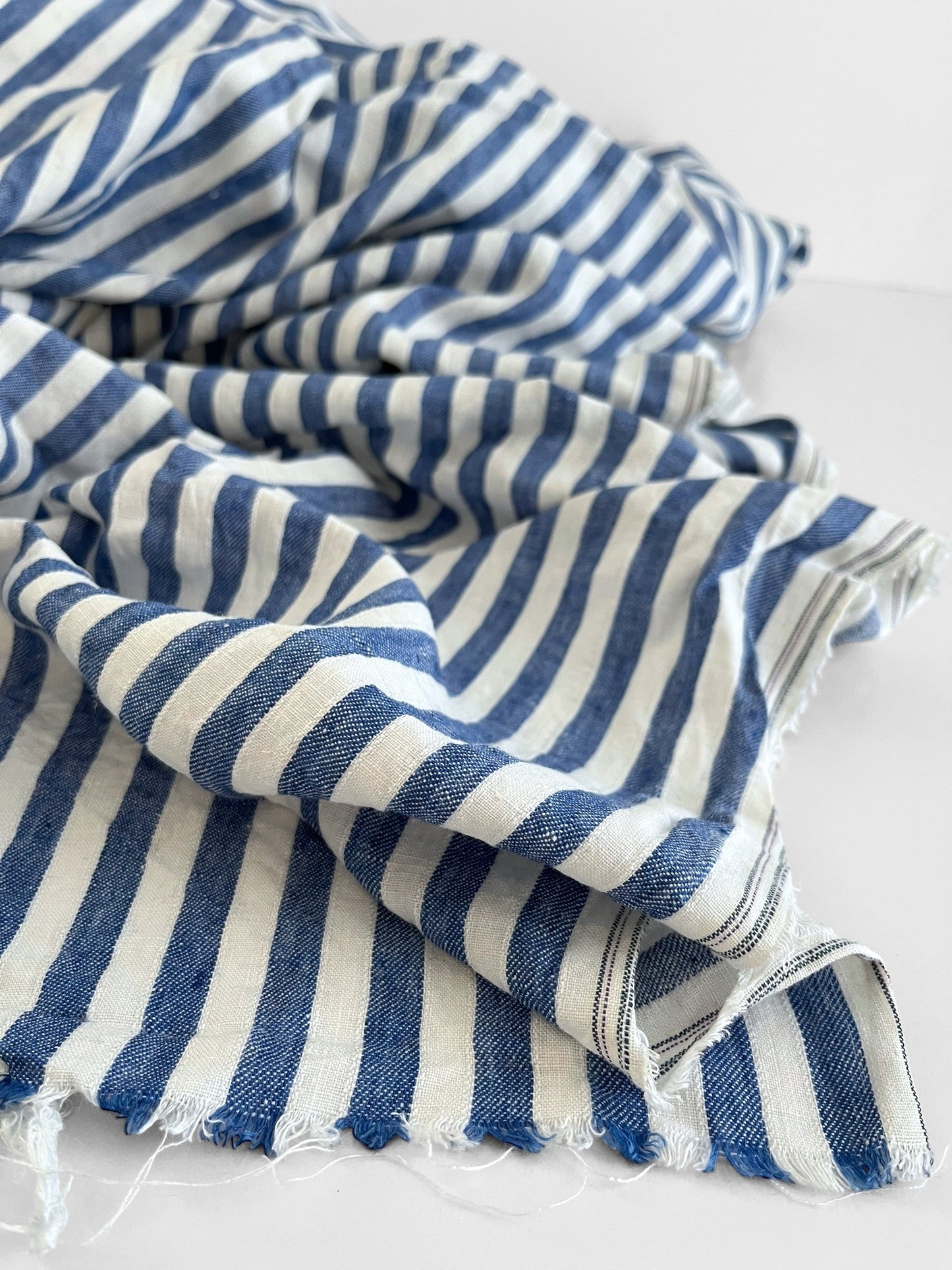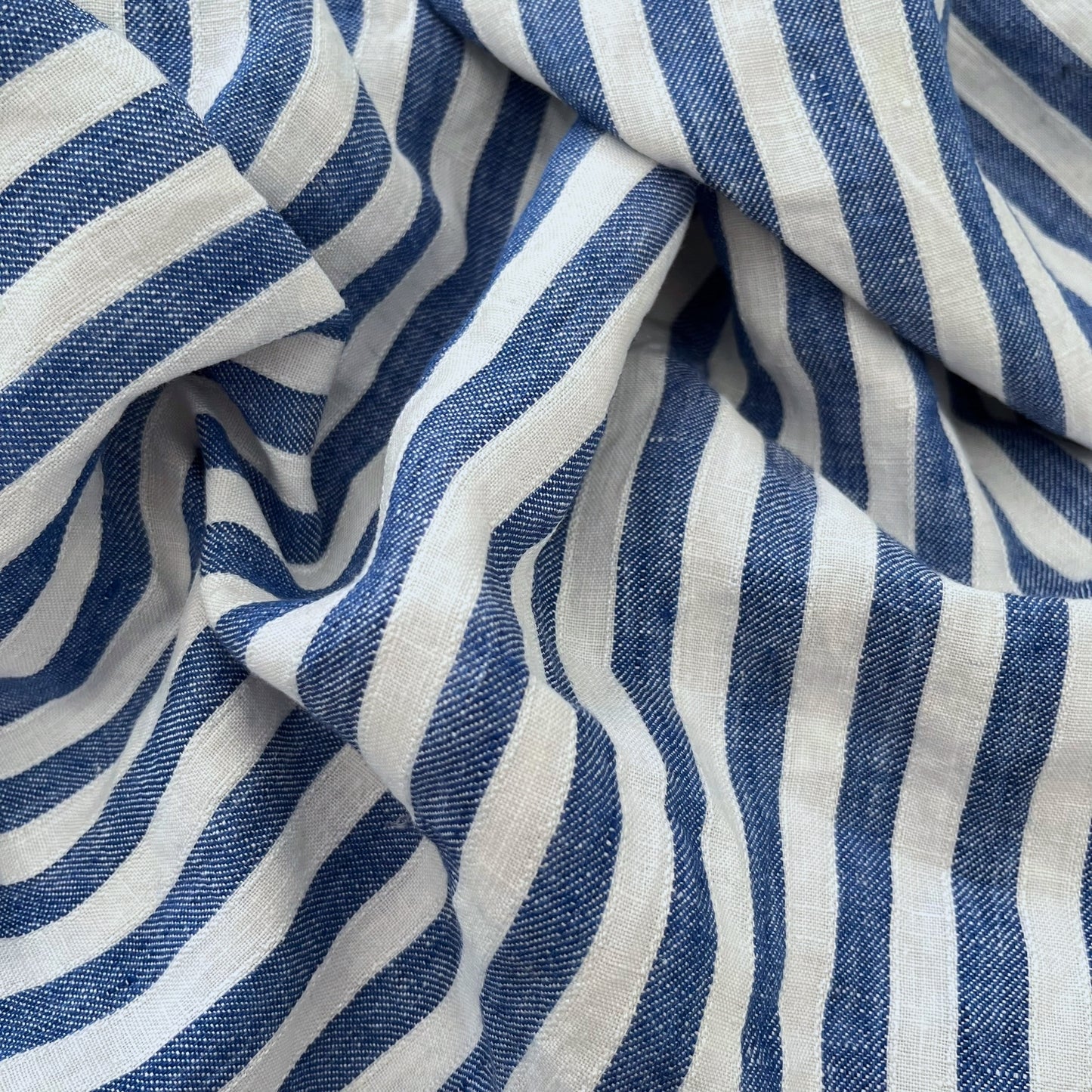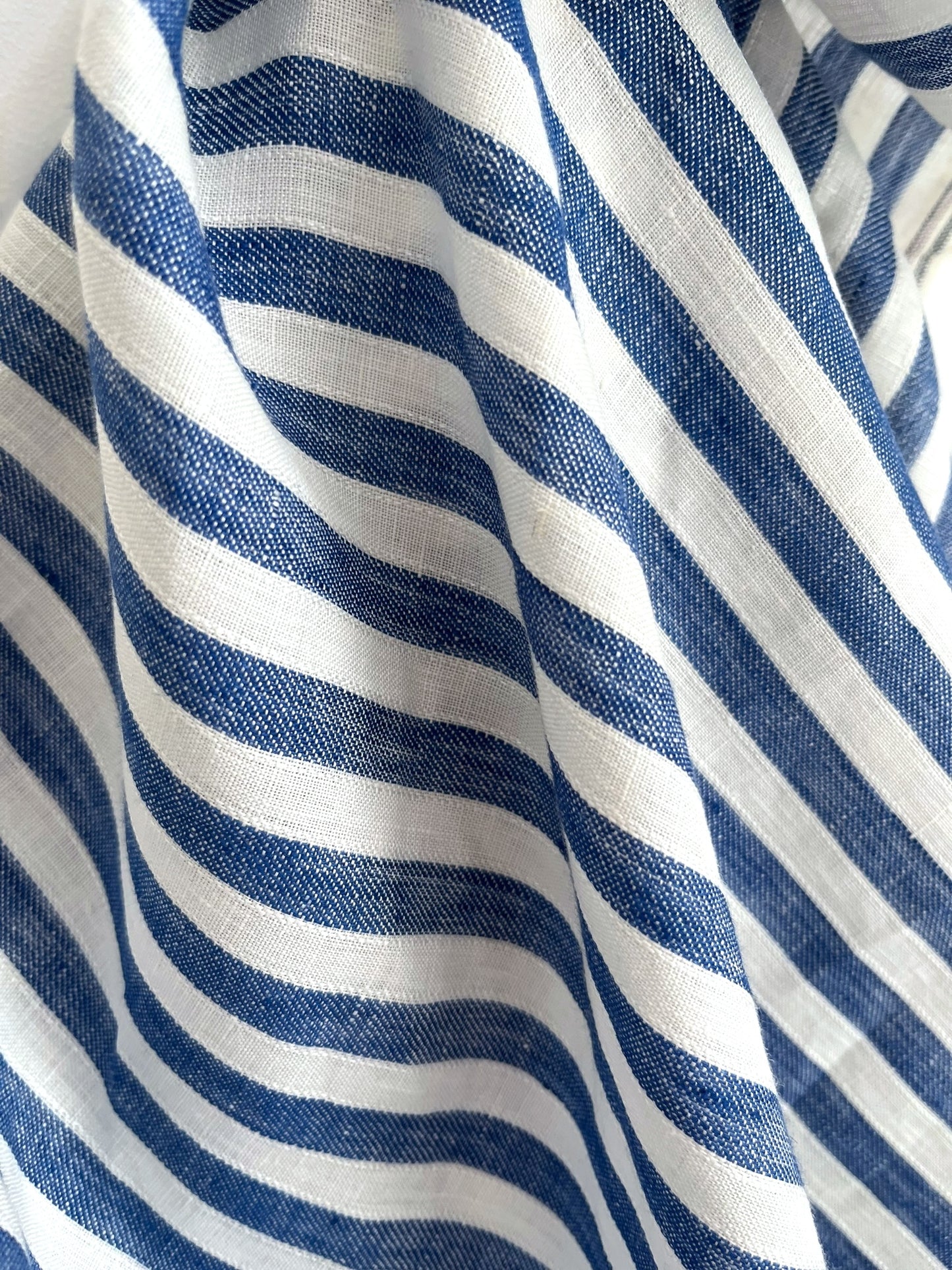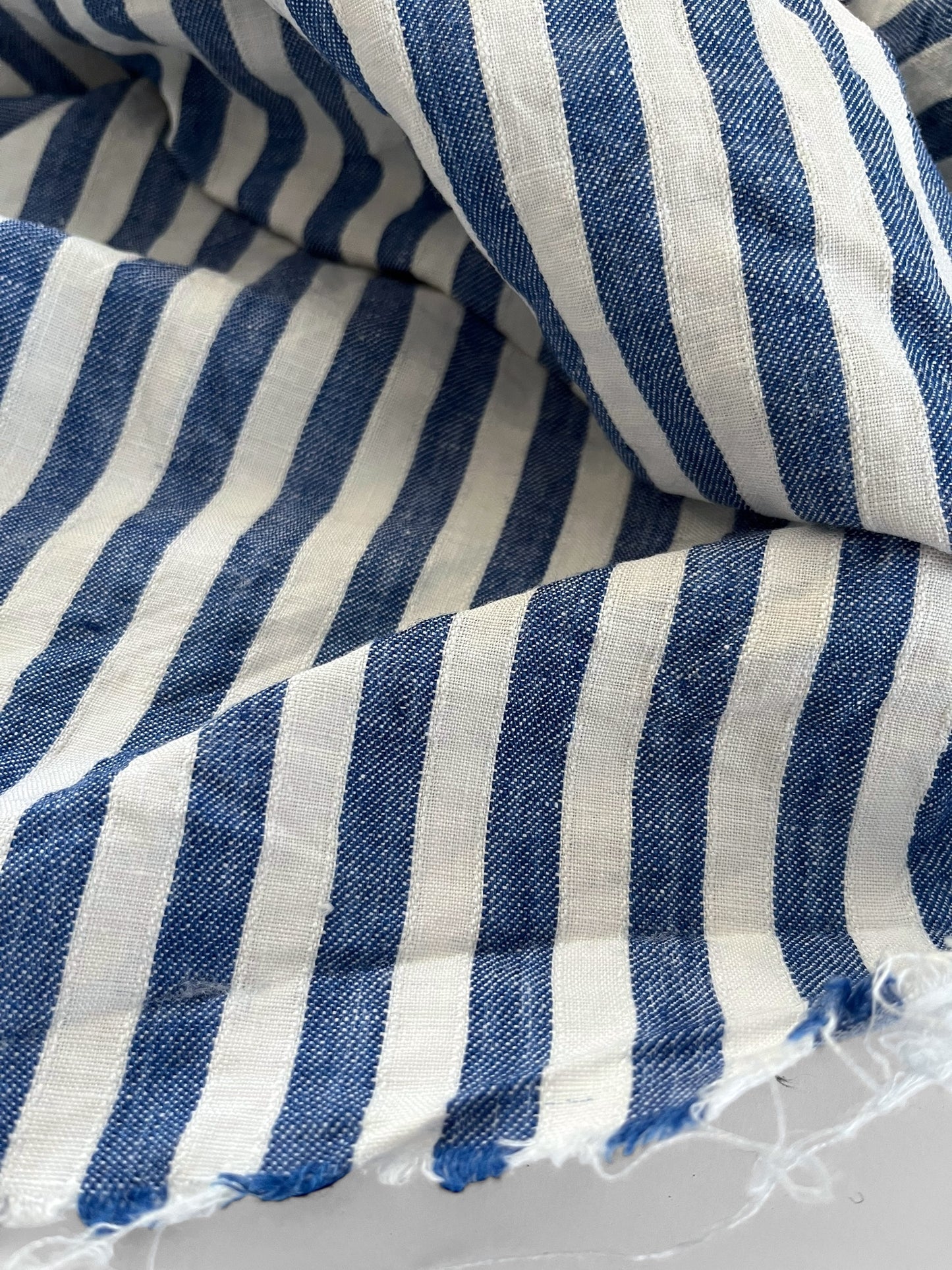yarn dyed linen 180gsm
Denim stripes
Denim stripes
Couldn't load pickup availability
Premium quality 100% linen milled from European flax - Oeko-Tex 100 certified
Its versatile medium weight makes it suitable for dress making, quilting, home decor, textile craft and more!
Truly unique, the chambray blue section of this cloth is a twill weave and the ivory section is a plain square weave. In between these stripes is a viscose yarn and you can see this clearly in the weave. The fabric has a beautiful drape and softness.
-----
- Composition: 99.5% LINEN 0.5% VISCOSE - Oeko-Tex 100 certified
- Width: 134cm
-
Weight: 180 gsm
- Pattern details: the stripes are approximately 1cm wide and run parallel to the selvedge
----
CARE
CARE
Wash at 30 degrees with a mild bleach-free detergent. Do not tumble dry. Shake out and dry flat. Both linen and hemp will always seize up after washing but as soon as you start to use/wear it the fibres relax again.
If you are using this linen for curtains we recommend using a lining to prevent fading.
Never dry in direct sunlight as the colour can bleach and fade.
SHIPPING
SHIPPING
AUSTRALIA
standard - AUD 15 flat rate
express - AUD 20 flat rate
NEW ZEALAND
standard - NZD 30 flat rate
express - please contact us for a quote
For more details on processing and shipping, including estimated delivery times, please click here
WHY LINEN?
WHY LINEN?
Breathable, durable, hypoallergenic, eco-friendly - linen has it all!
Linen is naturally stain resistant, does not pile, and is moth repellent. It is easy to wash as it can sustain high temperatures, is has very little if no shrinkage and is very strong.
It is anti-bacterial, anti-fungal, hypo allergenic and thermoregulating, it will also absorb up 20% moisture before feeling damp.
As the linen fibres have low elasticity (which causes it to crease) it will wear in any areas that are repeatedly folded in the same place for a long time, however it does have much better abrasion resistance than say cotton.
Eco-credentials
Flax is a strong plant best grown in northern Europe. It needs little or no fertilisers and due to the local climate, little extra water. It doesn’t really require many pesticides either as it can grow in poor quality soil. The Advisory Commission Report to the European Parliament stated that flax cultivation has positive effects on eco-system diversity as it allows for an “environmental pause”. One hectare of flax can retain 3.7 tonnes of CO2. Every part of the plant is used, what isn’t used to produce linen can be used to make linseed oil, paper, cattle feed or even soap.
Linen is therefore almost naturally organic. It is completely biodegradable, recyclable and due to its natural absorbency, it requires less dye than cotton. Linen therefore scores high on the ecological chart.
Share








